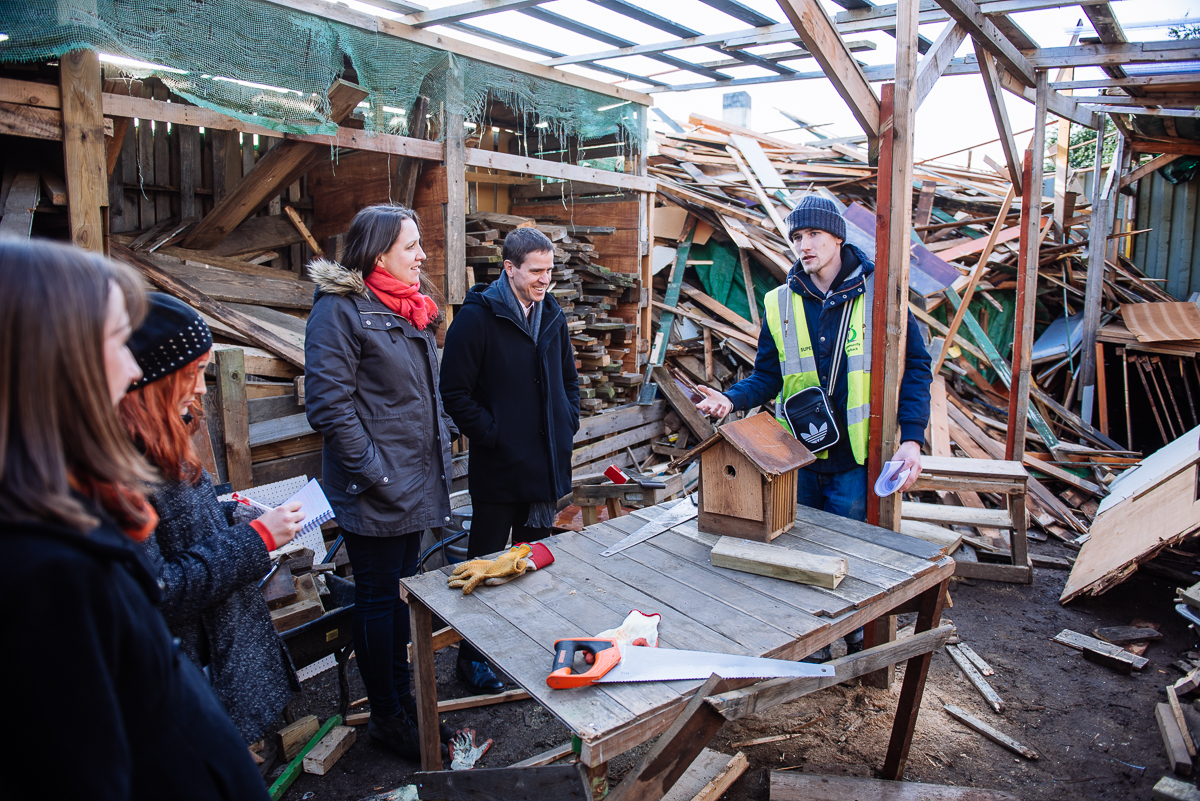Working in partnership with Power to Change, RIO and Sheffield University Management School the RSA have created a unique leadership programme to support those running community businesses across England. Sona Mahtani, Chief Executive of The Selby Trust understands well the unique challenges faced by these organisations, and the people who run them. Here she explains her experiences and tells us why access to this kind of support is so important for helping these organisations to flourish.
In 1992, a group of local people in Tottenham wanted to provide a safe, inclusive space for our diverse community. It led to the setting up of The Selby Trust, a place that I had volunteered in a year earlier as a community-led multi-purpose centre, located in a sprawling former school. The site is 1.2 hectares with offices, meeting rooms, training facilities, sports and events halls and a car park, made in the former playground. It is leased from Haringey Council, and provides a venue for local people to run local businesses, from a boxing ring to an independent not-for-profit primary school, a childcare facility, to an IT training centre. The site also includes a health check facility, helping local people have better access to healthcare in this deprived area.

Today, I’m the Chief Executive of the Selby Trust and have a pretty good handle on where this community business is going, and how to make sure the very diverse users of the centre are involved. But it wasn’t easy. That’s why Power to Change and the RSA, RIO and Sheffield Management School are running a specific programme to develop community business leaders.
A community business is not led by one or two people but draws on a wider spectrum of local people, often with a shared interest. It often emerges from a real community need, whatever that may be. Local people come together maybe to campaign to save a building, or provide a service that the local council no longer can, or create local opportunities for local people, whether social or economic. In our case, we wanted somewhere for the diverse community, which is primarily made up of black and ethnic minorities, refugees and other historically excluded communities, to meet, devise their own solutions to common problems and raise their aspirations.
But what do you do once you’ve saved the building? Opened up the centre? Are actually running a community business? Who takes the lead? How do you hold onto that vision?
At the beginning, you are a group of local campaigners focused on one cause and one goal. But when you achieve that goal, it’s often a struggle to become business leaders. This can lead to conflict as individual agendas surface, but is also a great opportunity for people who were not leading the charge to emerge as business leaders.
A community business leader understands that the organisation can only be as good as its engagement with members – you really need to listen to the people! What do they want? What do they need? And what impact will it have on the area? How does it connect to everything else that’s going on? Where are the gaps? You need to act with all these things in mind, running the operational side of the business, while prioritising inclusiveness. After all, your community business will most certainly have been started and continues to be powered by volunteers, people who are passionate about your cause and want to contribute something to it. Finding a part for each person to play, understanding how best to use their skills and expertise, is a challenge in itself.
This can be tricky when your business becomes more mature, as you move from a mainly volunteer base to staff. Giving casual volunteers a purpose is relatively easy – there will always be something for them to do. But when you take staff on, the stakes are higher. Suddenly you are a proper manager and have a more important duty of care. A shock for anyone who was initially a volunteer organiser.
The other important aspect to consider is your board of trustees. Making sure your trustees have a good mix of skills, and are invested in the improvement of the area through the impact of the community business is essential. Your board will help you consider all aspects of the business, including those you hadn’t even thought of. Finding people to do it for the right reasons and retaining them can be a challenge too.
As a community business leader, I don’t have all the skills or the answers to make our community business a success. But I make sure I surround myself with the best team to achieve this. I encourage those with the passion and skills to make a difference, whether staff or volunteers. I develop their potential, stoke their aspirations and give them responsibility to feel trusted and valued. Just as Selby Trust gave me the opportunity to develop and move forward, its my chance to do the same for those in our staff, board and network. Because after all, I can’t do it alone.
Sona joined the Selby Centre in Tottenham in 1989 and is now its chief executive. Her first role there was as a volunteer supporting a migrant health information project. Today the centre is used by over 100 social action organisations set by the diverse communities of that part of north London. She is a member of Power to Change's Community Business Panel.
Find out more about the RSA's leadership programme for community business.

Be the first to write a comment
Comments
Please login to post a comment or reply
Don't have an account? Click here to register.